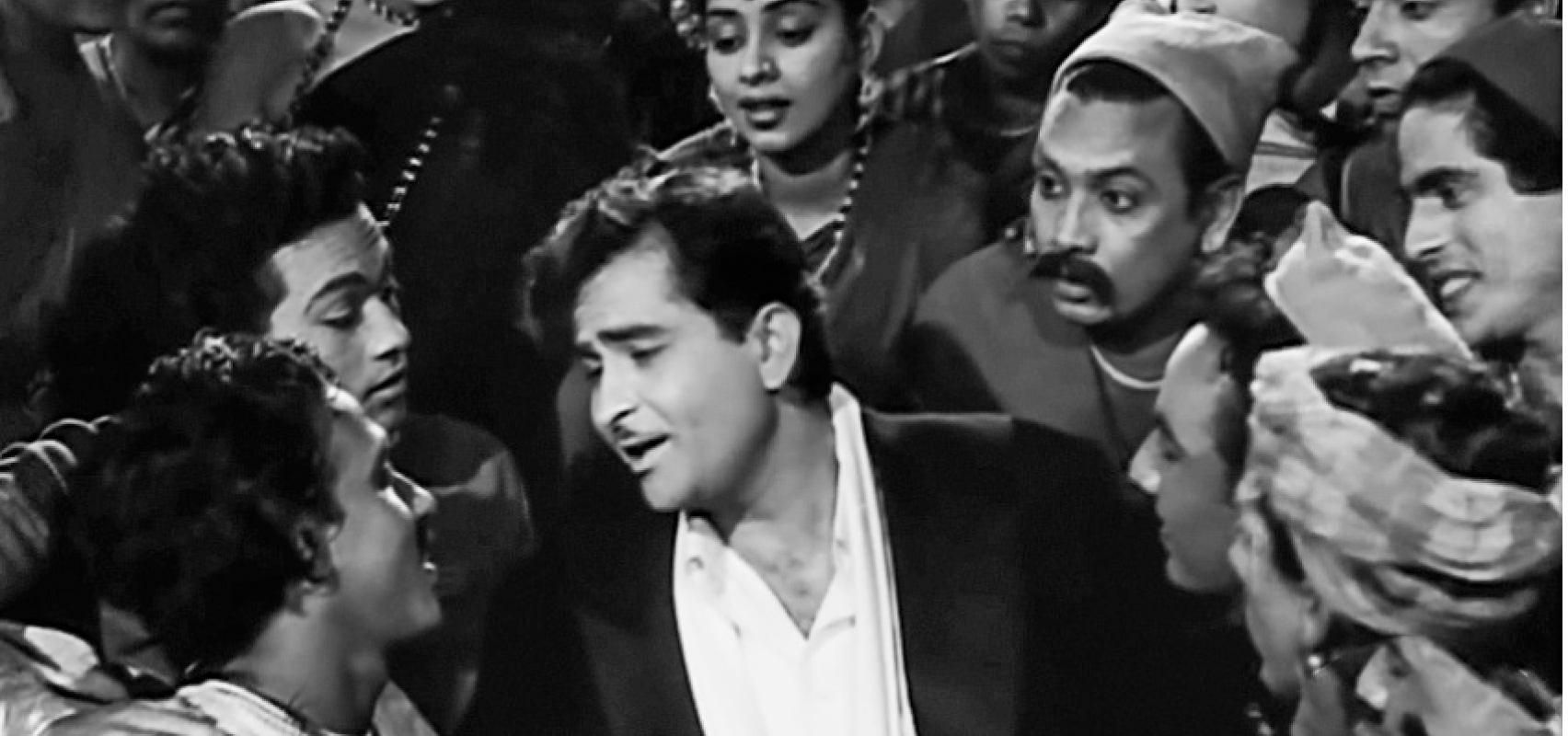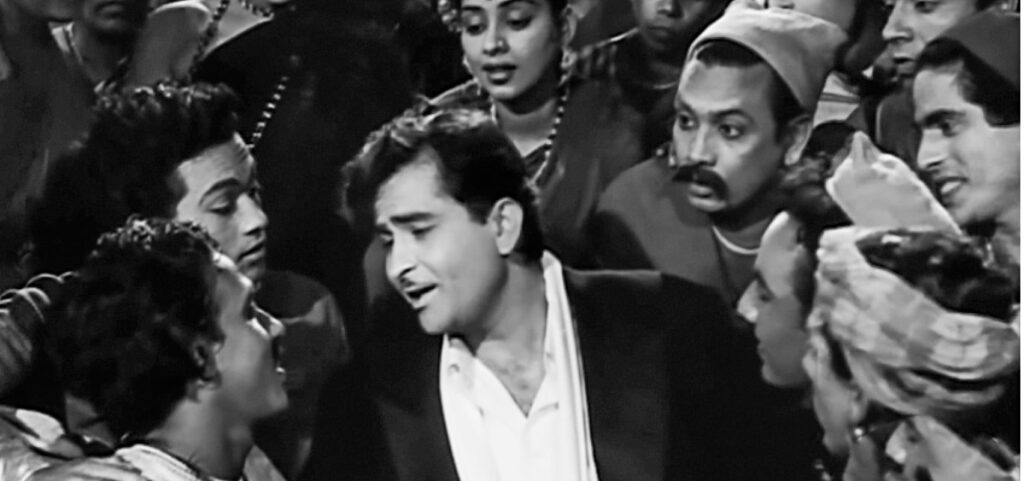Youngsters today would be amazed to know that Hindi film songs — the pet craze of all Indians no matter where they live, what they eat, how they pray — were in 1952 actually banned by All-India Radio. Reason: Dr B V Keskar, the then Minister for Information and Broadcasting, felt that Hindi film songs were vulgar and westernised.

This inspired the birth of Binaca Geetmala on Radio Ceylon — a one-hour programme, every Wednesday evening, of top Hindi film songs. Millions of Indians tuned on to Radio Ceylon on Wednesday evenings. Sri Lanka had hit the entertainment jackpot, thanks to Hindi film songs.
India reversed its ban, and Hindi film songs returned to the centre stage of entertainment with the birth of Vividh Bharati in 1957.
The Keskar episode highlights the irresistible appeal of Hindi film songs, which know no expiry date and no borders. Magic, nostalgia, national integration — call it what you will: There’s a memorable song to celebrate every occasion, every mood, every event, every season, every family role (that of mother, father, grandparents, uncle, aunt, son-in-law, daughter-in-law).
In earlier years, the orchestra gave singers a rest, today we sing to give the orchestra a rest.
– Lata Mangeshkar
Hindi film songs can electrify with their exuberance. They can charm with romance, drip with melancholy or take lofty philosophical wings. They can spark religious fervour, inspire patriotism. Through them, you can relive old love and friendships, heal wounds, recall old festivities and revelries, the glories and embarrassments of your boyhood and adolescence.
Nehru and Ramaiya vastavayya
A personal anecdote on the memories that music kindles. Whenever I hear Ramaiya vastavayya, the Shree 420 hit, I think of Jawaharlal Nehru. Ridiculous? Let me explain. Early in 1956, PM Nehru was to address a public meeting at Lal Bagh in Bangalore. I was then a schoolboy — smitten, like thousands of others, by Panditji. He was late, and a huge crowd waited patiently. The authorities entertained the crowd with songs from Shree 420 on the public address system. Ramaiya Vastavayya blared out several times. The PM arrived. His charisma was overpowering. His speech was a trifle cliched. But the audience clapped with delight every few minutes.

Whenever someone mentions this song, the image that comes to mind is not that of a feisty Raj Kapoor or a bubbly Lalita Pawar, but of a dapper rose-in-buttonhole Jawaharlal Nehru whom I saw for the first time in flesh and blood on a balmy Bangalore evening.
Touching all human emotions
Says Gopal Gandhi, former Governor of West Bengal, “There is no human emotion that Hindi film lyrics haven’t dealt with”. Old Hindi songs remind you of occasions happy and sad, of parents, of sweethearts, of triumphs, tragedies and heartbreaks, of crises faced and overcome, of weddings and funerals, births and deaths.
Even purists of Carnatic music get besotted with Hindi film songs. Stalwart singer Madurai G S Mani has said that when Mughal-e-Azam was released in 1960, he loved the music so much that for a few weeks, he watched the last shows of the film every night. He would walk home after the shows because buses would stop plying before 1 am!
Three Muslims put together an enternal bhajan
In 1953, Rafi’s immortal song Man tarpat Hari darshan ko aaj (from Baiju Bawra) took India by storm. It was written by Shakeel Badayuni, composed by Naushad, sung by Rafi, Three Muslims had masterminded the most eternally brilliant bhajan of Indian cinema. It did more for national integration than tons of speeches and exhortations.
Raj Kapoor told me in an interview way back in 1965 that hundreds of foreigners were trying to learn Hindi so that they could appreciate Hindi film songs better. I was a bit sceptical of this claim then. But more than 40 years later, an English economist asked me whether I could recommend a Hindi language manual. Why, I asked. He said he loved Hindi film songs but didn’t understand the meaning, he would like to learn the language. I remembered Raj Kapoor’s words — he wasn’t exaggerating.

Over the years, melody in music seems to have given way to rhythm, aesthetics to electronics. “Dang badal gaya, rang badal gaya” (The style has changed; the colours have changed.) remarked lyricist Anand Bakshi. “In earlier years, the orchestra gave singers a rest, today we sing to give the orchestra a rest,” said Lata Mangeshkar in the late 1990s. Talat Mahmood was once asked why he quit singing for films. His response: “Romance is out, violence is in. Melody is out, western pop is in. How can I sing about beauty in a disco?”
But A R Rahman has a counter to those who decry the fading away of melody in Hindi film music. “Music has to keep moving with the times,” he contends. “It can’t be static, it must reflect trends in society.”
Mesmerising melodies of yore
Melody does glow now and then in today’s cinema but it’s a rarity. Today’s orchestra-powered music has its devotees, but for millions of music fans, there’s no substitute for the mesmerising melodies of Naushad, Shankar Jaikishen, S D Burman, C Ramachandra, Madan Mohan or O P Nayyar.
Romance is out, violence is in. Melody is out, western pop is in. How can I sing about beauty in a disco?
– Talat Mahmood
Hindi film fans will remember that many years ago, Pakistan President Pervez Musharraf said that some Pakistani soldiers had told Indian counterparts in jest “Madhuri de do, Kashmir le lo” (Madhuri Dixit was a craze in Pakistan). An article in Pakistan’s best-known daily, Dawn, remarked, “Let’s ask for Lata Mangeshkar instead. We have Noor Jehan already, so both queens of music will be in Pakistan.”
Which are the best, the greatest-ever Hindi film songs? It takes courage to even pose such a question. How do you pick a few from thousands of gems? However, it is possible to list around 40–50 immortal songs of the 1950s. the richest and the most resplendent era of Hindi film music, from top composers like Naushad, Shankar-Jaikishen, C Ramachandra and O P Nayyar, who were at their best then, along with Lata and Rafi.
The writer is a member of Rotary Club of Madras South, RID 3232.
Forty top songs from the 1950s
- Tu kahe agar jeevan bhar – Singer: Mukesh. Film “Andaz”. Year of release: 1950. Composer: Naushad
- Gore gore O banke chore – Lata & chorus in “Samadhi” (1950). Composer: C. Ramachandra
- Mehfil mein jal uthi shama – Lata in “Nirula” (1950). Composer: C Ramachandra
- Awara hoon – Mukesh in “Awara” (1951). Composer: Shankar-Jaikishen
- Dheere se aaja re – Lata in “Albela” (1951). Composer: C. Ramachandra
- Meri kahani bhoolnewale – Rafi in “Deedar” (1951). Composer: Naushad
- Thandi hawayen, lehrati aayen – Lata Mangeshkar in “Naujawan” (1951). Composer: S D Burman
- Hari Om, man tadpat hari darshan ko aaj – Rafi in “Baiju Bawra” (1952). Composer: Naushad
- Tu ganga ki mauj – Rafi in “Baiju Bawra”, 1952. Composer: Naushad
- Jaag dard ishq jaag – Lata & Hemant Kumar in “Anarkali” (1953). Composer: C. Ramachandra
- Yeh zindagi usiki hai – Lata in “Anarkali” (1953). Composer: C Ramachandra
- Sham-e- gham ki kasam – Talat Mahmood in “Footpath” (1953). Composer: Khayyam
- Aye gham-e-dil kya karoon – Talat Mahmood in “Thokar” (1953). Composer: Sardar Malik
- Jaaye to jaayen kahan – Talat Mahmood in “Taxi Driver” (1954). Composer: S D Burman
- Babuji dheere chalna – Geeta Dutt in “Aar Paar” (1954). Composer: O P Nayyar
- O chandan ka palna. Hemant Kumar in “Shabab” (1954). Composer: Naushad
- Tu pyar ka sagar hai – Manna Dey in “Seema” (1955). Composer: Shankar-Jaikishen
- Mera jhootha hai Japani – Mukesh in “Shri 420” (1955). Composer: Shankar-Jaikishen
- Pyar hua ikrar hua hai – Lata & Manna Dey in “Shri 420” (1955). Composer: Shankar-Jaikishen
- Nainso nain nahi milao – Lata & Hemant Kumar in “Jhanak jhanak payal baaje” (1955). Composer: Vasant Desai
- More saiyan ji utrenge paar – Lata in “Uran Khatola” (1955). Composer: Naushad
- Ae dil hai mushkil jeena yahaan— Rafi & Geeta Dutt in “CID” (1956). Composer: O P Nayyar
- Ketaki gulab juhi champak ban phule – Manna Dey & Bhimsen Joshi in “Basant Bahar” (1956). Composer: Shankar-Jaikishen
- Aye maalik tere bande hum— Lata in “Do Aankhen Barah Haath” (1957). Composer: Vasant Desai
- Duniya mein hum aayen to jeena hi padega – Lata and chorus in “Mother India” (1957). Composer: Naushad
- Maang ke saath tumhara – Rafi & Asha Bhonsle, Naya Daur, 1957. Composer: O P Nayyar
- Saathi haat badana – Rafi, Asha & chorus in “Naya Daur” (1957). Composer: O P Nayyar
- Eena meena deeka – Kishore Kumar in “Aasha” (1957). Composer: C Ramachandra
- Zara saamne to ao chaliye – Lata & Rafi in “Janam janam ke phere” (1957). Composer: S N Tripathi
- Kuhu kuhu bhole khoyaliya – Lata & Rafi in “Suvarna Sundari”(1957). Composer: Adi Narayana Rao
- Jinhe naaz hai hind par woh kahan hai – Rafi in “Pyaasa” (1957). Composer: S D Burman
- Sar jo tera chakraye – Rafi in “Pyaasa” (1957). Composer: S D Burman
- Ayiye mehrban – Asha Bhonsle in “Howrah Bridge” (1958). Composer: O P Nayyar
- Ye raatein, yeh mausam, nadi ka kinara – Asha & Kishore in “Dilli ka Thug” (1958). Composer: S D Burman
- Achcha ji main haari, chalo man jao na – Asha & Rafi in “Kala Pani” (1958). Composer: S D Burman
- Hum pyar mein jhalne walon ko – Lata in “Jailor” (1958). Composer: Madan Mohan
- Yun hasraton ke daag – Lata in “Adalat” (1958). Composer: Madan Mohan
- Lagi chute na ab to sanam – Lata & Rafi in “Kali topi lal rumal” (1959). Composer: Chitragupta
- Kahe jhoom jhoom raat ye suhani – Lata in “Love Marriage”, (1959). Composer: Shankar-Jaikishen
- Jalte hain jiske liye – Talat Mahmood in “Sujata” (1959). Composer: S D Burman






